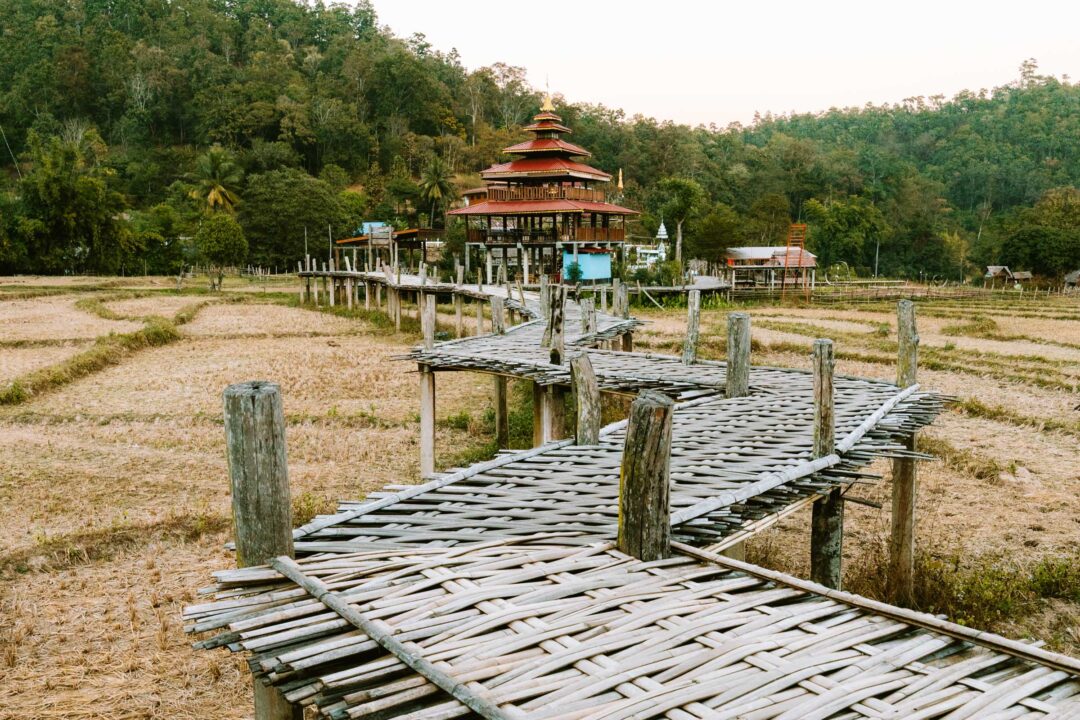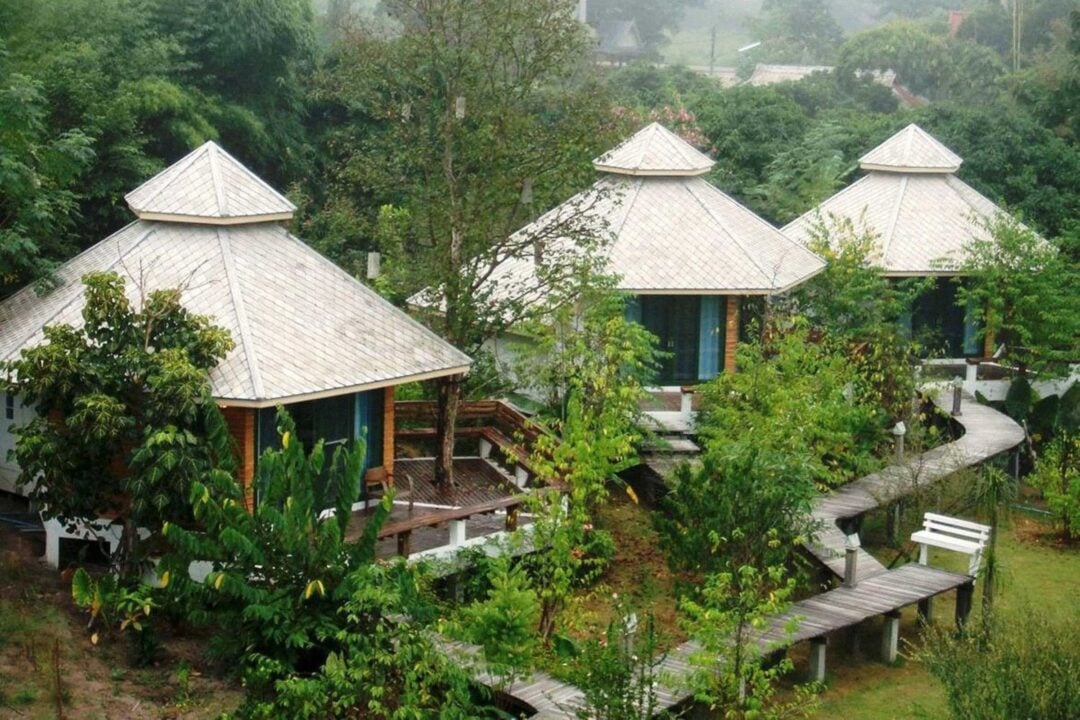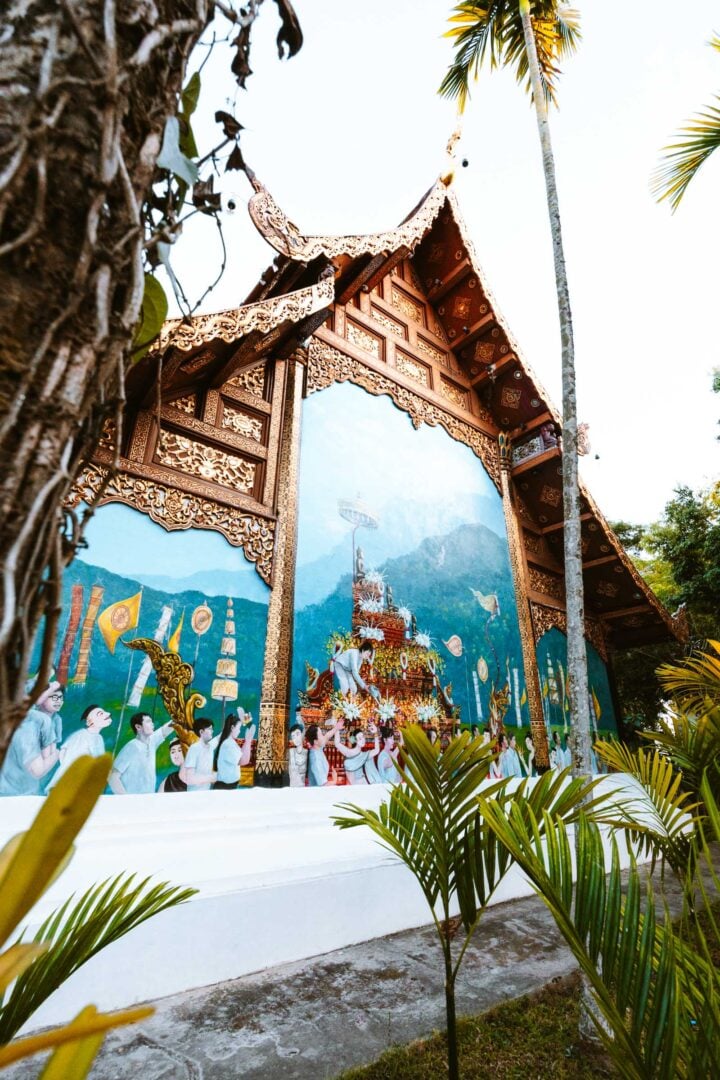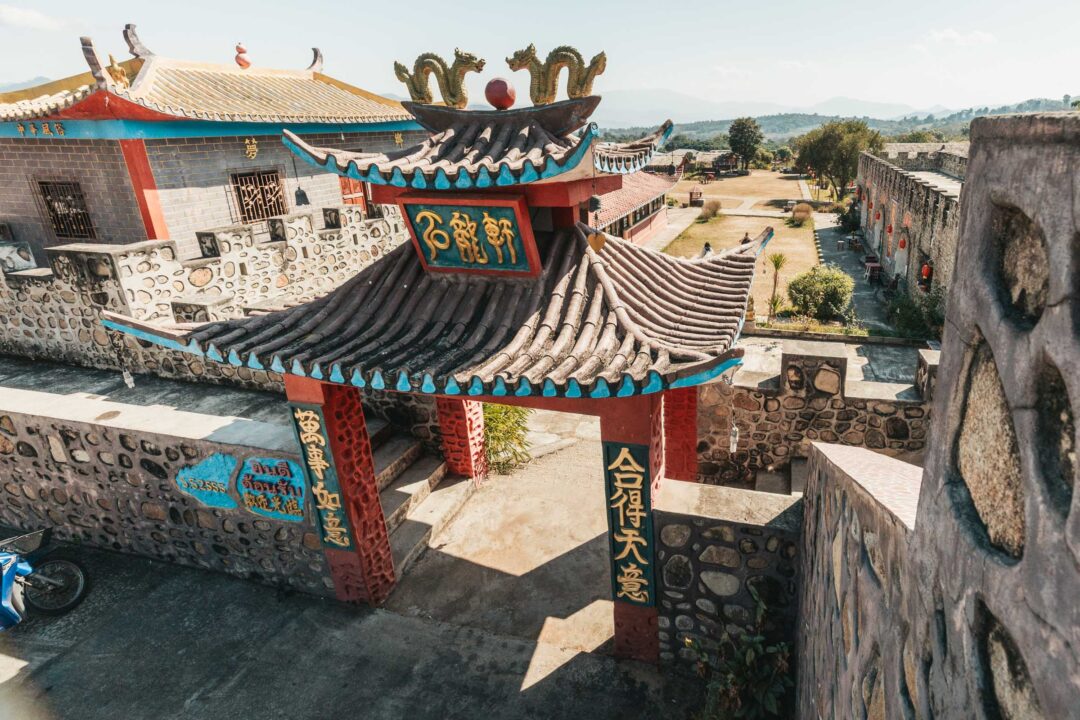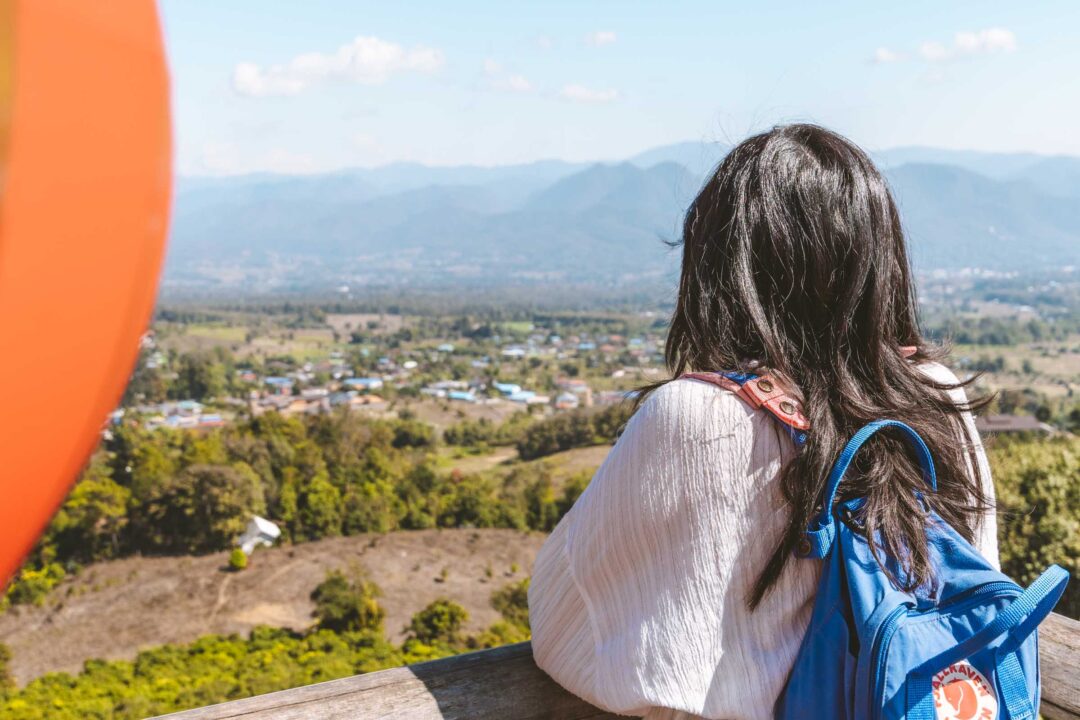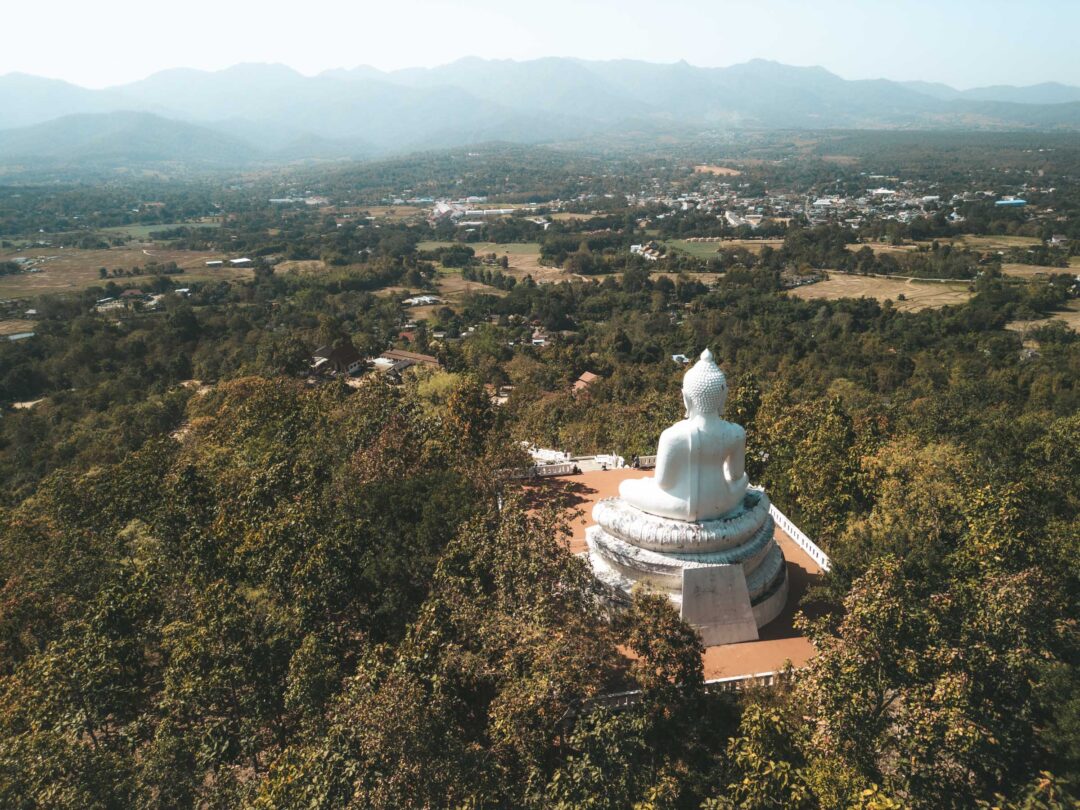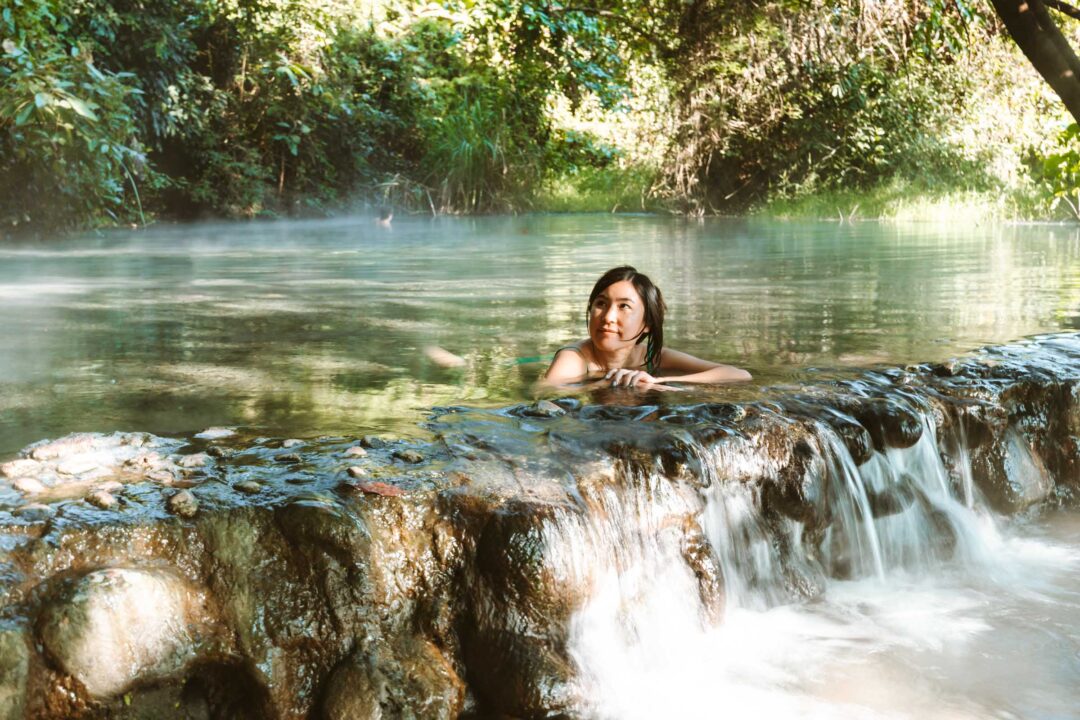The Kho Ku So Bamboo Bridge has an interesting origin. It began as a practical fix for locals to get around their rice fields without damaging the crops. So instead of carving out dirt paths or building roads, they wove together long stretches of bamboo to create bridges that literally go right over the rice fields.
But what started out as a functional way to get around the rice fields eventually became a tourist spot. As Pai became a backpacker destination, travelers started hearing about the bamboo bridges in Pai, and the bridge evolved into a photogenic sightseeing area just outside the town.
In this guide, I’ll share everything you need to know before visiting the Kho Ku So Bamboo Bridge in Pai, including how to get there and what to expect when you arrive.


Pai Bamboo Bridge Complete Guide
The Pai Bamboo Bridge winds through rice fields and grazing pastures. It’s a view of rural Pai, with a few huts where you can sit and relax, along the way. It’s quiet, calm, and more of a slow wander than a major sightseeing stop.
If you want to see the iconic green rice fields you’ve probably seen in photos, you need to visit between June and October. That’s when the rice paddies are green and lush. We visited during the dry season in January and found the landscape more brown than green, which changed the vibe but was still interesting in its own right.
As for the best time of day, I recommend visiting the Pai Bamboo Bridge in the mid to late afternoon. It’s not a great spot for sunset since the surrounding hills block the sun and it gets dark early. Instead, go to Pai Canyon for sunset after visiting the bamboo bridge, which is about 15–20 minutes away and has one of the best sunset views in Pai.
- Kho Ku So Bamboo Bridge Pai Entrance Fee: 30 baht per person

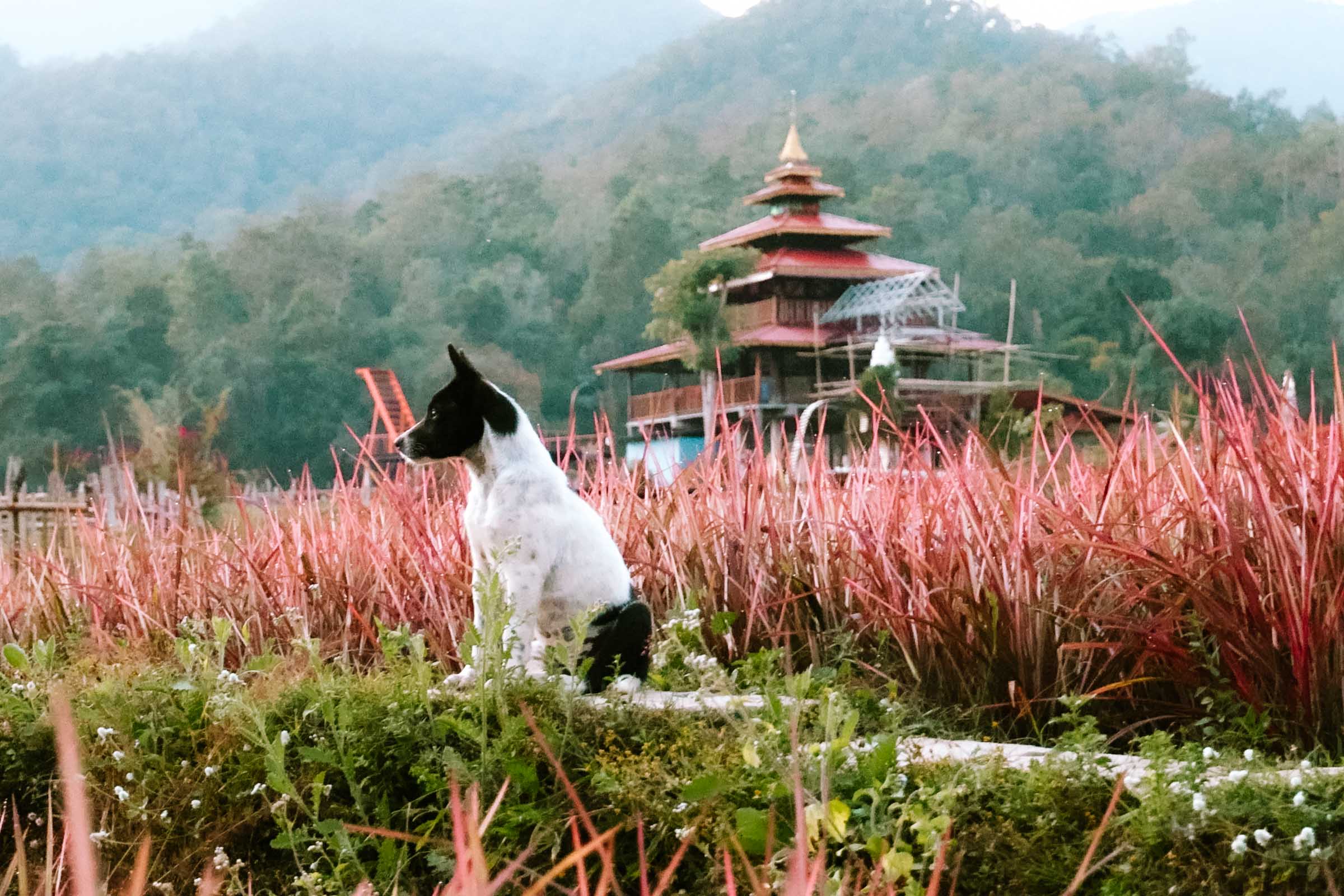
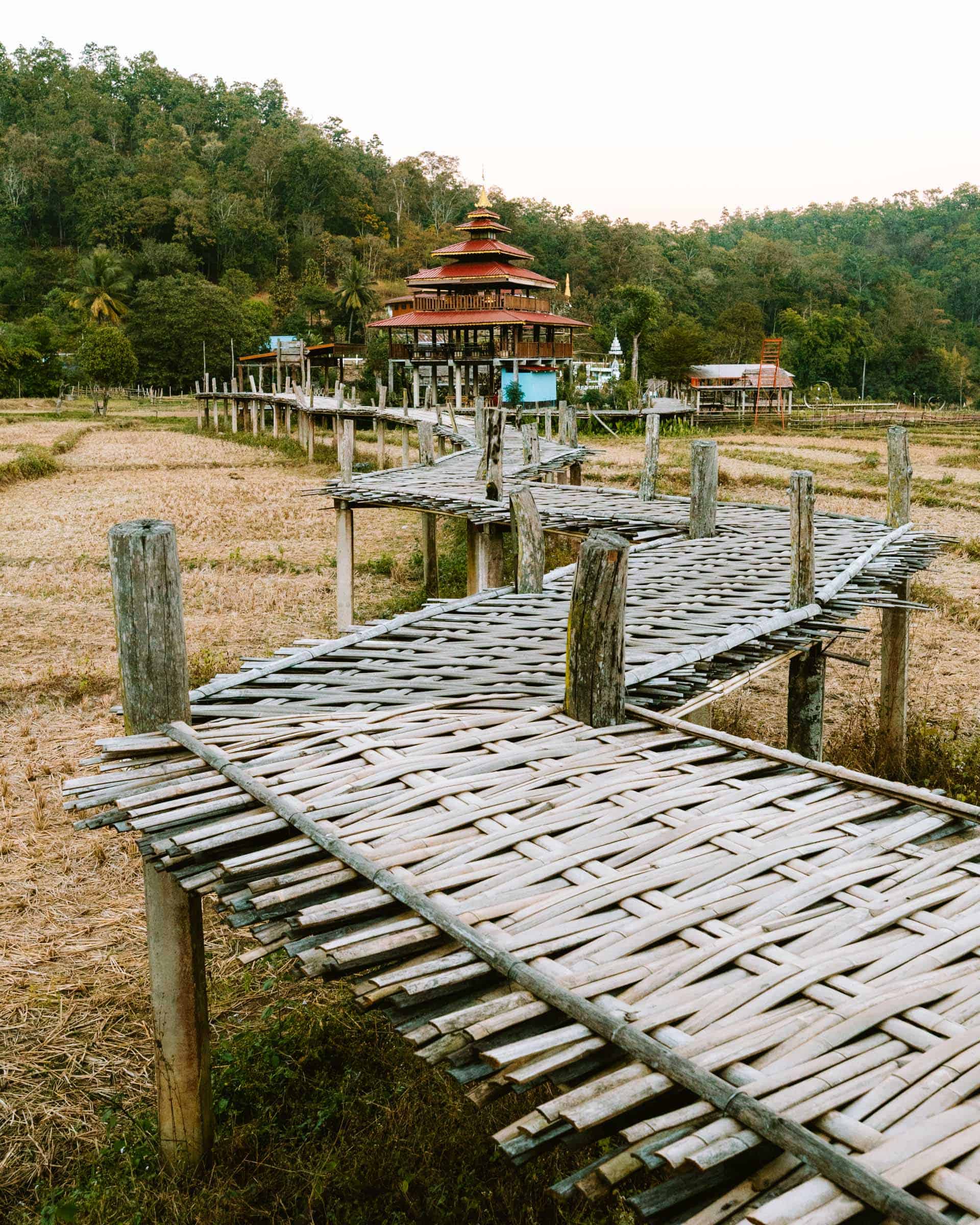
How to get to Kho Ku So Bamboo Bridge in Pai
Kho Ku So Bamboo Bridge is about a 25-minute motorbike ride south of Pai. The route is split between a main highway and a narrower local road that winds through the hills up into a quiet valley. The local road has a few steep areas, winding turns, and a few bumpy spots so take it slow and ride carefully.
Eventually, you’ll spot a sign on the left for Bamboo Bridge Parking. Turn there and park in the small dirt lot right at the entrance of the bamboo bridge.
The map location below for the Kho Ku So Bamboo Bridge is accurate, however, if you use it to navigate there you will miss the turn for the bamboo bridge. Instead, navigate to the bamboo bridge parking area and it will take you right where you need to go.


Kho Ku So Bamboo Bridge in Pai: Our Experience
I’ll be honest, when we first pulled into the parking area, I wasn’t sure if we were in the right spot. It felt more like we’d arrived at someone’s farm as a group of water buffalo casually strolled by. And in a way, that’s exactly what it was.
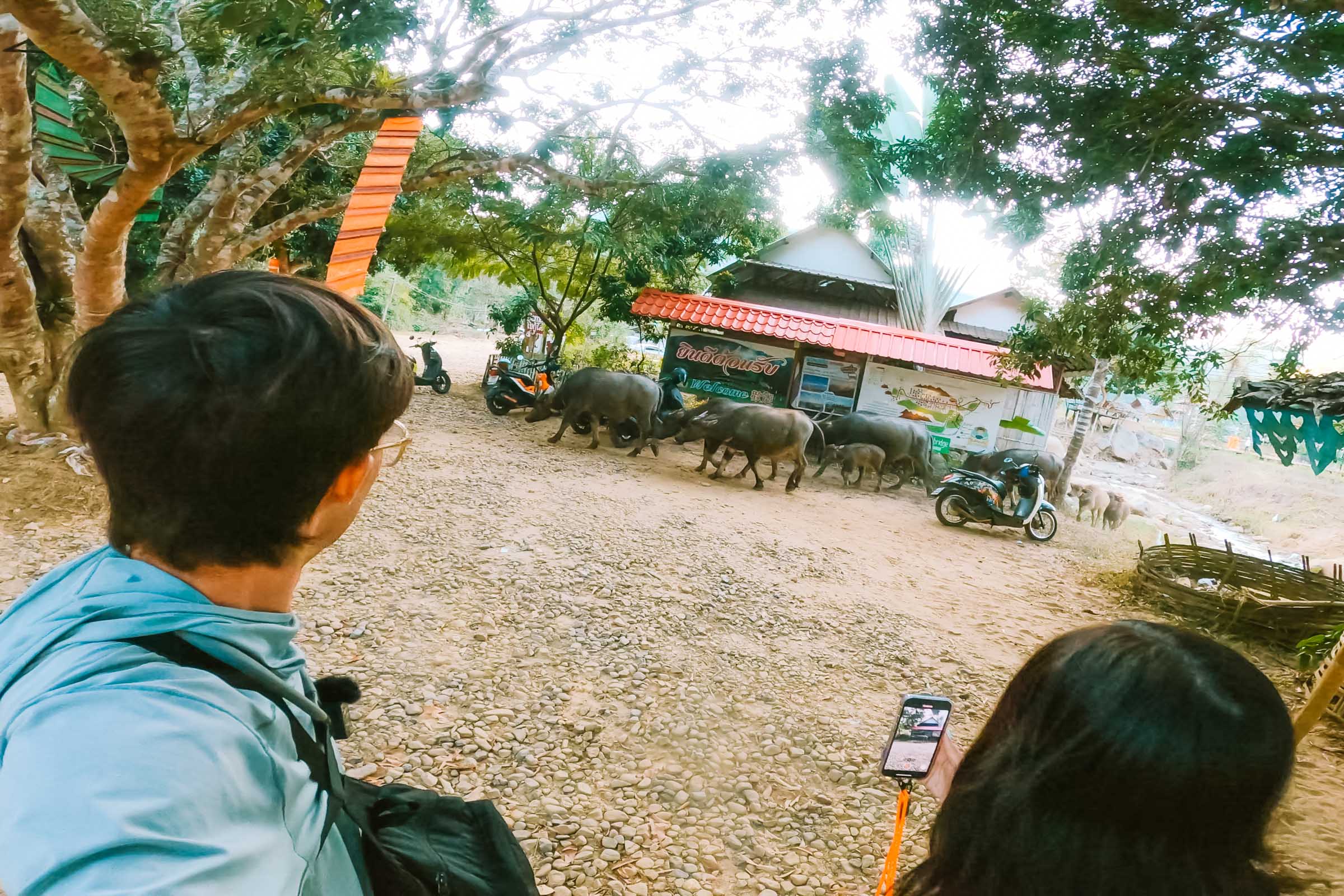
We paid the entrance fee and walked through the gate to find a few scenic photo spots right away. Little setups clearly added with visitors in mind.
Unfortunately, we visited during the dry season, so the rice fields were mostly bare. Not exactly the lush, green landscape we’d seen in photos. But that’s ok because the place was nearly completely empty.
As we walked over the bamboo bridge, it let out a soft crunching sound beneath each step. I looked down and noticed the bridges were made of interwoven pieces of bamboo, sort of like a long, flat basket. It was surprisingly strong, but it wasn’t without its damages. A few spots were patched with fresh bamboo where the old layer had worn through.


We followed the bridge all the way to the end, where the bridge rose slightly as it entered a valley. Along the way, we passed through a few gazebos built along the bridge as rest areas. We sat down as it began to turn dark. It was a quiet and peaceful moment.

On the way back, we met a friendly monk who was visiting from Bangkok. He told us he’s working with local farmers to grow a special kind of rice called rainbow rice.
We actually spotted some rainbow rice near the entrance of the bamboo bridge. Its bright color was unmistakable in the dry season. Since this type of rice grows year-round, maybe when you visit the bamboo bridge, the rice fields will be colorful hues of pink and purple.


Where to Stay in Pai
Wiang Tai (Central Pai) is the heart of Pai and where most of the town’s accommodations are located. It’s where you’ll find Pai’s walking street, night market, cafes, bars, restaurants, scooter rentals, shops, and pretty much everything you’ll need for your stay. It is the easiest place to base yourself if you want to be in the center of the action and Pai’s social scene.
Here are our recommendations on where to stay in Wiang Tai:
If you’re looking for a more rural area with a free-spirited vibe, then Mae Hai is a better fit. It’s a big area that’s adjacent to Central Pai. Some parts of it sit deep in the countryside amongst rice fields, country roads, and wide open views.
Here are our recommendations on where to stay in Mae Hai:
If you prefer to find your own place to stay, you can visit Booking.com to explore all your accommodation options in Pai.
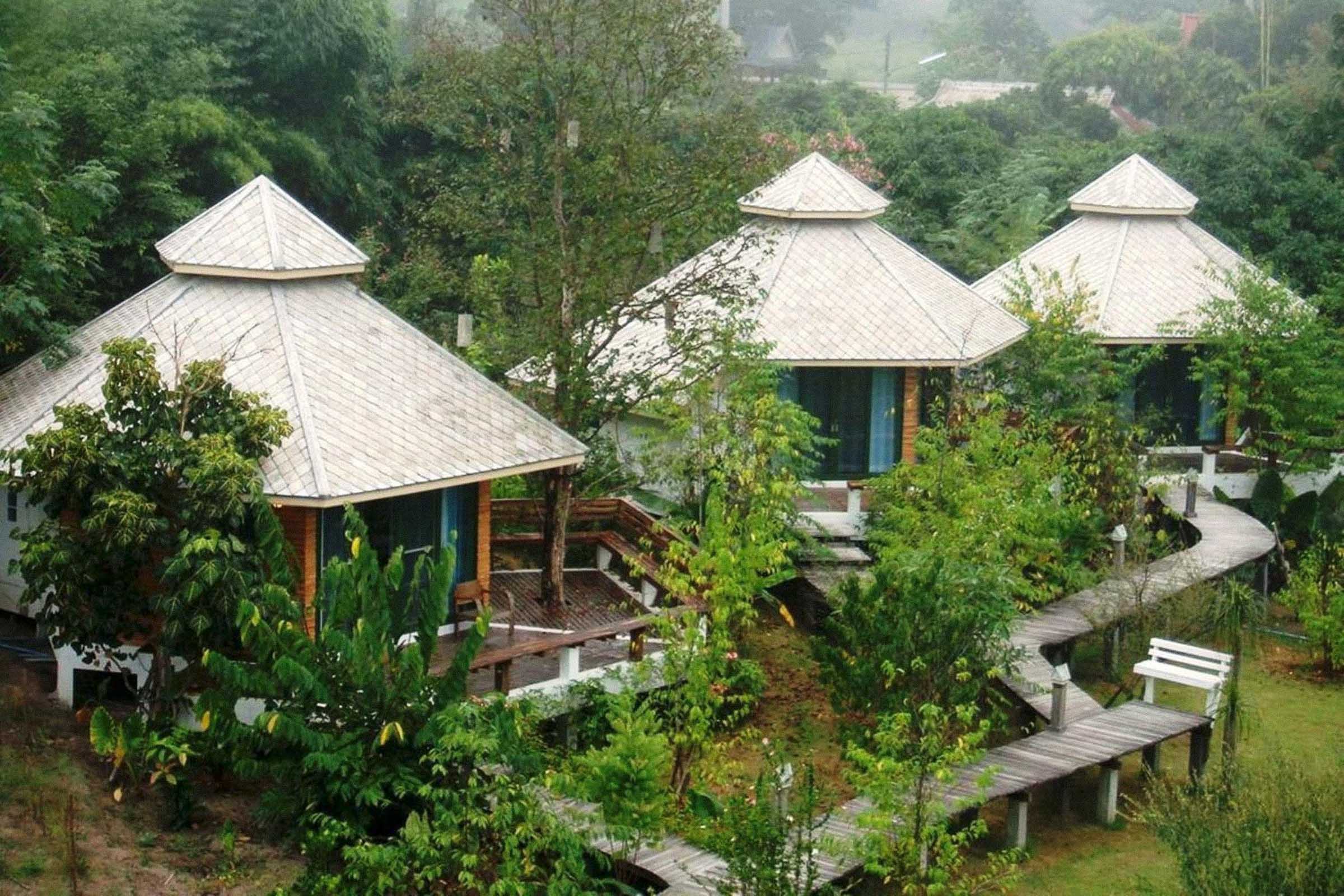

Our Free Pai Google Maps Locations
Want a free map of all of the locations mentioned in this post? Sign up in the box below and we’ll deliver one right to your inbox, plus our top tips to help you plan your Pai trip!
Are You Following Our Pai Blog Series?
We spent 7 days in Pai and found so many things to do there… from canyons to mountains, waterfalls, and hot springs. To help fellow adventurers, we’ve put together guides to the best places we found. You can check them out by clicking the links below.
- Start planning your trip here: Pai Travel Guide
- Our ultimate guide to Pai: 14 Incredible Things to Do in Pai
- Our Pai accommodation guide: Where to Stay in Pai
- Best place to wander around in Pai: Kho Ku So Bamboo Bridge
- Our favorite place to swim in Pai: Sai Ngam Hot Spring
- Best sunrise views in Pai: Yun Lai Viewpoint
- Our favorite temple in Pai: Wat Sri Don Chai
- Best sunset in Pai: Pai Canyon
- Pai’s Chinese Cultural Village: Santichon Village

I hope you enjoyed our guide to the Kho Ku So Bamboo Bridge in Pai. Feel free to leave a comment below if you have any questions 🐸

